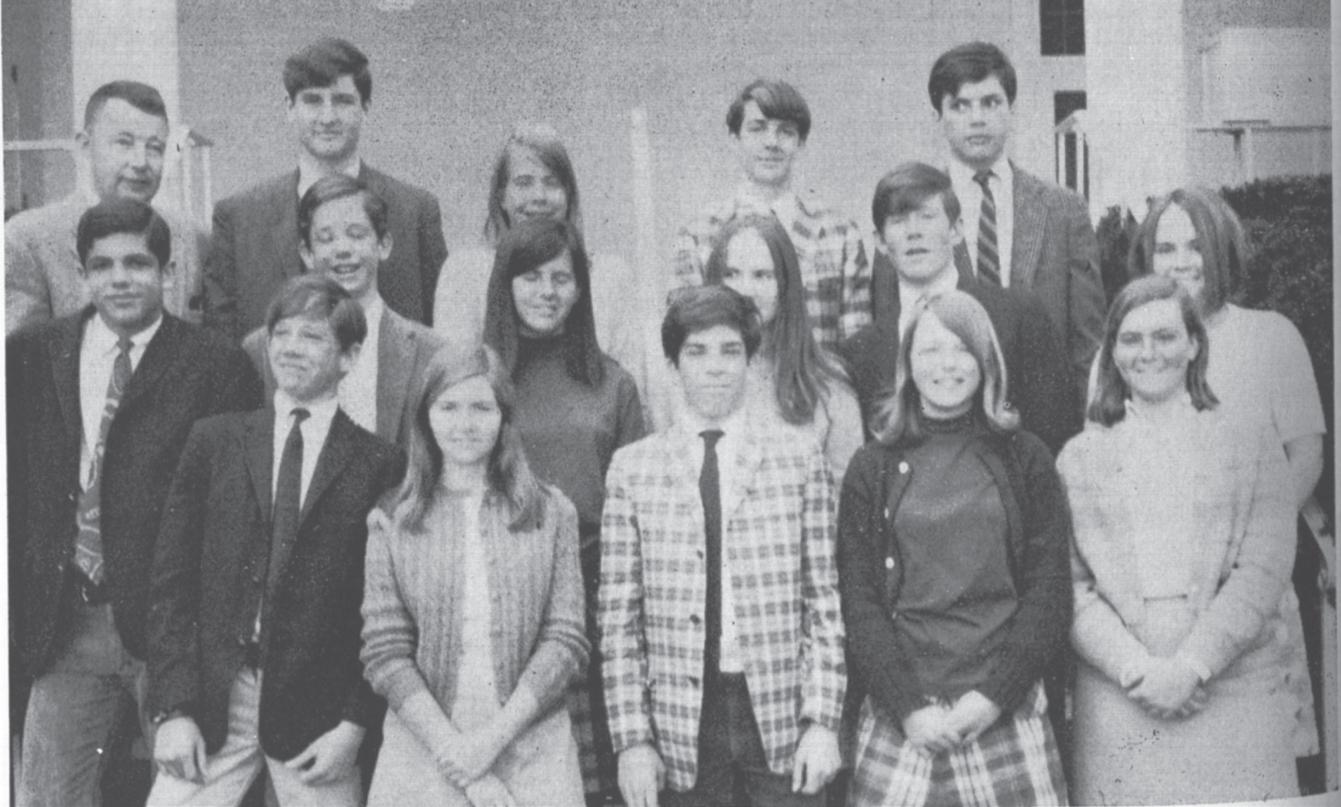
2 minute read
Grade 9 English
with Mr. Merriss
By Pamela Constable
I only wish that the inspiring teachers who encouraged me to become a writer, especially Mr. Merriss in Grade 9 and Mr. Ramsey in Grade 6, could be here to share the credit. After Bill Merriss retired to Cape Cod, he and I exchanged letters often, and I dedicated my 2005 memoir, Fragments of Grace, to him.
My romance with the written word started right here, at Country Day. Every morning, in Grade 9 English, Mr. Merriss would put several new words on the board and discuss their roots and meanings. We also read and wrote poetry, and periodically produced a collection of our writings called Ex Multis . I still have copies of it somewhere, with a passage by Divya Symmers describing a girl on a summer afternoon, “meditatively licking her ice cream cone,” and a haiku by Lisbet [Nilson] about a church steeple pointing to the sky, which ended with the question, “Where is God?” We were 15 then.
been held to high standards of fairness are being questioned and targeted as false.
“This is both untrue and demoralizing,” said Ms. Constable. “Every story I filed has been checked and reviewed for accuracy and fairness. The more important the story, the more layers of editors had to vet it. This may be annoying to an author, but is essential to maintaining the standards, credibility, and the readers’ trust.”
Responsible newspapers, she said, present the issues of the day in a calm and reflective manner and publish a wide variety of opinions that are within the bounds of civility.
New, fast-changing technologies that report news within seconds are also profoundly changing the news landscape. “Anyone with a laptop or smartphone can blurt out to the world whatever comes into their head, including hateful screeds and anonymous death threats,” she said.
Most worrisome, according to Ms. Constable, is the fact that newspapers are losing their most important asset—the public trust.
“This mirrors a broader phenomenon in which many people have become suspicious of all authority and public institutions, including legislatures, courts, electoral systems, and academia.”
During the Q&A session, students pressed Ms. Constable about how journalism can meet the moment.
“The reporter and the pundit cannot be the same person,” she answered. “And there has to be a line drawn around social media. It has to be more rigorous and serious about keeping out defamatory and violence provoking commentary. It’s up to the producers and regulators of social media to do that. They are way behind.”
In conclusion, Ms. Constable acknowledged that newspapers must adjust to the demands and opportunities of the time. “What matters is that their role in society, and the standards they represent, not become extinct. History tells us that without a responsible, independent press to challenge false prophets and imaginary hobgoblins, even democratic societies can fall prey to both the false security of autocracy and exhilaration of anarchy, with disastrous results.” )










